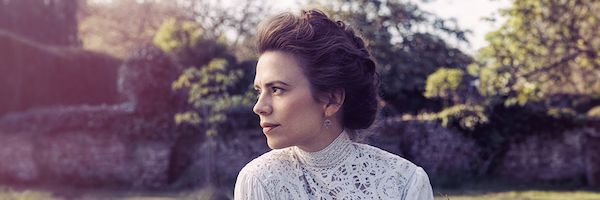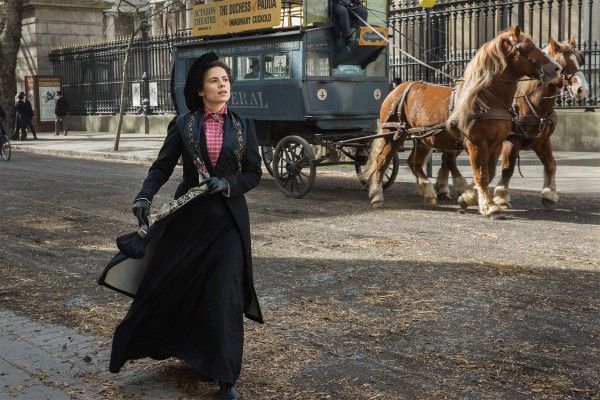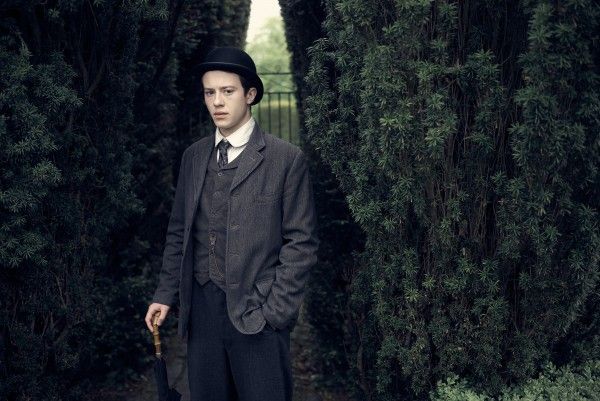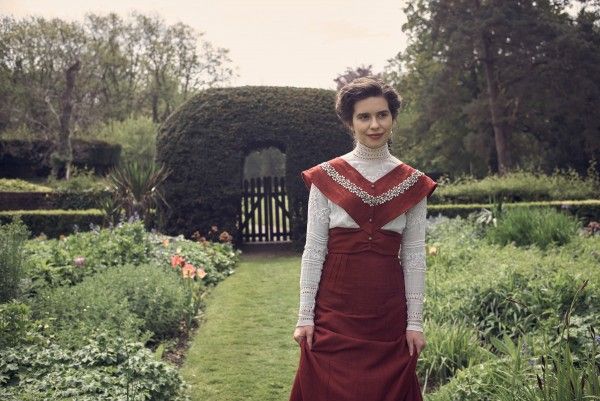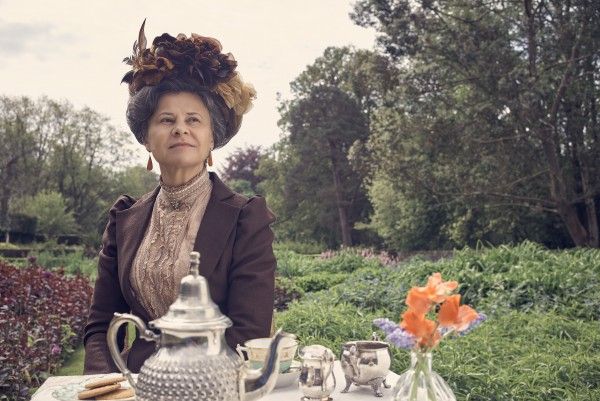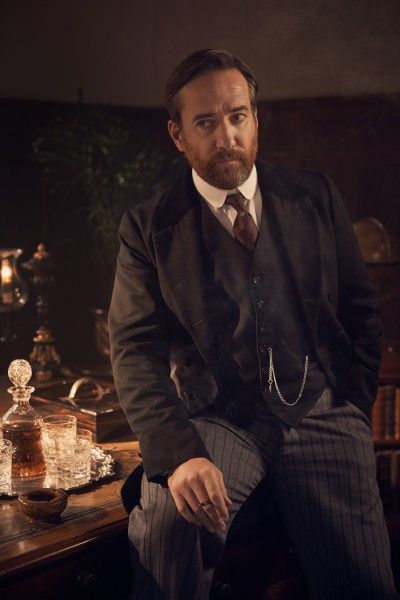There is a lot of talking in Starz’s new miniseries Howards End. Some of it is just chatter, but other times it’s the exchange of ideas, or the admonishment of siblings, or profuse apologies. The point is that there’s an almost overwhelming amount of it, and yet, Kenneth Lonergan’s script (an adaptation of E.M. Forster’s novel) is delightful. The words are crisp, clever, and even the chatter reveals important character traits and dynamics. Nothing is wasted in this series, which is gorgeously directed in full by Hettie MacDonald. Her camera is never static, which reflects the energy of its cast. This is Edwardian England, yes, but it’s the dawn of a more progressive era — one that series (like the material on which it is based) confronts head-on.
Howards End starts with an engagement that is broken almost as soon as it is offered, and it launches us into the collision of two families. The engagement happened, however briefly, between the vivacious Helen Schlegel (Philippa Coulthard), and the youngest son of a plutocrat, Paul Wilcox (Jonah Hauer-King), whose families had met earlier while touring Germany. As Helen visits their idyllic country getaway, Howards End, she observes the family with affection and wonder, noting their adoration of their quietly powerful matriarch, Ruth (Julia Ormond). The end of the engagement sours Helen on the Wilcoxes though, not because of a lost love, but because of how emotionally callous they are. It’s in direct opposition to her own home life, and the closeness she has with her sister Margaret (Hayley Atwell), who has been the head of the family since their parents’ deaths, as well as with her younger brother Tibby (Alex Lawther).
What separates the two families more than anything, though, is ideology. The wealthy but bohemian Schlegels are champions of the people, and take on social causes (or “experiments,” as Tibby perhaps more accurately describes them). Margaret — who emerges are the link to everything in the story — hosts luncheons of society intellectuals, and the siblings all enjoy not only debating art, music, and literature, but politics and trade. The debates are lively and open, and are never meant to embarrass or subdue anyone. It’s an idealistic exchange, one that continues as the Schlegels and Wilcoxes see more of each other as neighbors. And while the sisters thrive on this kind of intellectual curiosity and confrontation, it’s met with reticence by Ruth Wilcox and her husband Henry (Matthew Macfadyen) who, extremely politely, believe women should not dabble in such matters.
The latest experiment that the Schlegel sisters have taken on is that of Leonard Bast (Joseph Quinn), a young and poor clerk who they admire for wanting to raise his social status through his own stunted conversations about art and literature. He is attracted to their openness, but also recoils from it, interpreting it as condescending — and perhaps it is. Henry warns the sisters that they are playing a dangerous game with Bast, which turns out to be true. They end up passing on some employment advice that goes sour, and then feeling responsible for his ill fortune, seek to remedy things through desperate measures.
What Forster plays with in this story is that of a multi-layered inspection of a class culture that is rapidly changing. The Schlegels have enough money to live and not work, but they’re half-German — a fact that never goes without mention or suspicion. The Wilcoxes have extraordinary wealth from the exploitation of workers overseas, but they lack the warmth and social graces of a family like the Schlegels (except for Ruth, who came from humbler beginnings and retains a certain earthiness). Bast, of course, works hard and yet can’t make ends meet, something that’s mostly pitied by his wealthy acquaintances. These themes, and the dynamics among the characters, all play out with extraordinary subtlety though. Howards End is essentially a series of experiential vignettes, and not everything in the story is very clear. You come away from them with feelings rather than thoughts or pronouncements. There’s so much to unpack about the movements and motivations of these characters, with are almost entirely mysterious, and yet it all feels like a late-summer reverie.
One of the most interesting things about the four-hour series though is how relevant it feels, both in its politics and its exploration of gender norms. It studies, perhaps without even meaning to, several different waves of feminism, especially when it comes to the wonderfully clever, outgoing and caring Margaret (It also doesn’t hurt that Atwell is at her most lovely and charming in this series), who modern audiences might see as compromising too much in service of a relationship. The men, meanwhile, are all furtive and awkward and emotionally restrained. Again, it’s not something that is immediately obvious or distracting, nor is it a judgement in any way. Instead, it’s a challenge for these characters who bend towards each other as they seek to come together romantically or otherwise (for what it’s worth this is not a romance). As they renew their acquaintance after a small time jump, Margaret sees things increasingly from Henry’s point of view without ever really thinking like Henry, and the same is true for him. These characters are wonderfully complicated and frustrating, and some actions are striking in how surprising and messy they are. Messy things rarely happen in this controlled world, but when they do, the responses are fascinating and sometimes heartbreaking.
The lesson of Howards End, if there is one, might be how these vastly different personalities always keep things pleasant, yet never in a way that feels false. In such a vitriolic and divided atmosphere as the one we exist in now, there’s something aspirational about the exchange of ideas — even passionately — that these characters have. They talk and talk a’plenty, but crucially, they also listen, grow, and change without losing themselves.
Rating: ★★★★★
Howards End premieres Sunday, April 8th on Starz.

